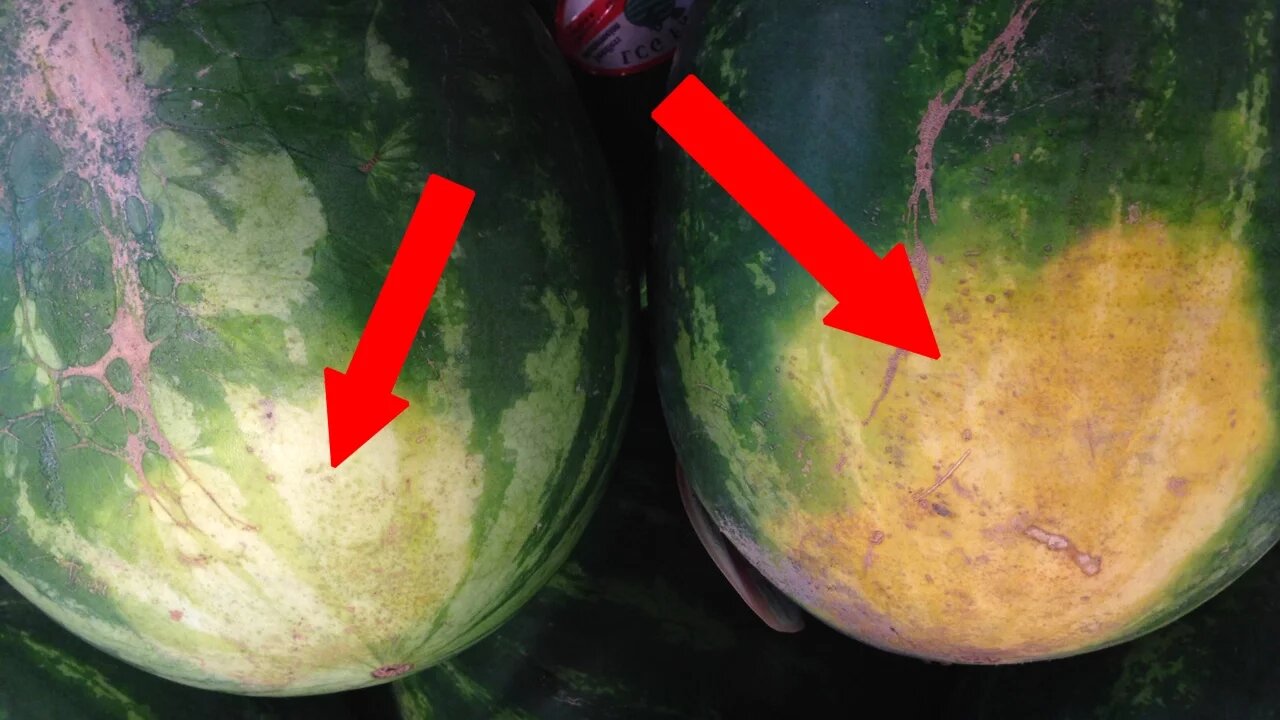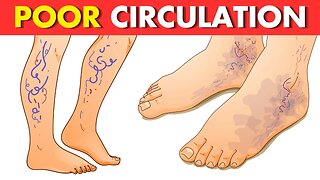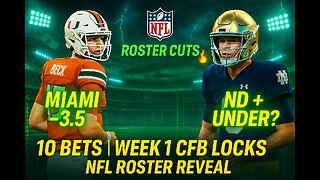Premium Only Content

How To Pick The Perfect Watermelon
What’s a summer picnic without a juicy, delicious watermelon? But before we slice it open, let’s back up to when we first decided it was the right one to purchase.
If you’re like most people, you could use a few tips when at the market. And in today’s video we’ll highlight 5 tips on how to pick the right one.
1. Field Spot
This is the creamy or yellow part of the watermelon’s shell that rested on the ground. What can that color tell you? It’s almost as if it’s an inside peek, indicating that it basked a long time in the sun, ripening.
Avoid ones with white spots, as they needed more sunbathing time before being plucked from the vine.
2. Webbing
We can thank bees for playing such an important role in this process; their pollination is what kicked things off. Excess pollination will create lots of brown webbing. A large amount of webbing is your clue that the inside is ripe and sweet.
3. Gender
Yes, a watermelon has a gender. The tall – or long ones - are males. If the watermelon is plump, round or stout, it’s classified as a female. Take a moment to guess which one is the sweetest. It’s the girl! And if it’s a bizarre shape, it indicates its growth was not an easy process as it probably struggled for sunlight and water.
4. Size
In the case of the watermelon, the largest ones aren’t necessarily the tastiest. The best ones are average in size. Rule of thumb; don’t pick one too large or too small.
5. Tail
Taking a final glimpse of the watermelon, we must examine its tail. If it’s green, skip it. That is an indicator that it isn’t quite ripe. Instead, go with the one that looks dried.
Facebook: https://bit.ly/38BWbw3
Pinterest: https://bit.ly/2Irvwa6
Disclaimer: The materials and the information contained on Natural Cures channel are provided for general and educational purposes only and do not constitute any legal, medical or other professional advice on any subject matter. These statements have not been evaluated by the FDA and are not intended to diagnose, treat or cure any disease. Always seek the advice of your physician or other qualified health provider prior to starting any new diet or treatment and with any questions you may have regarding a medical condition. If you have or suspect that you have a medical problem, promptly contact your health care provider.
-
 4:50
4:50
Natural Cures
1 year ago $1.29 earned5 Warning Signs of Poor Circulation and How to Fix It
4.27K3 -
 LIVE
LIVE
Jeff Ahern
47 minutes agoFriday Freak out with Jeff Ahern
91 watching -
 LIVE
LIVE
Reidboyy
1 hour agoHow To Make $$$ in Delta Force Console Operations!
28 watching -
 1:59:29
1:59:29
Tim Pool
4 hours agoIsrael VS Palestine DEBATE, Misfit Patriot VS Rathbone | The Culture War with Tim Pool
108K165 -
 15:53
15:53
Talk Nerdy Sports - The Ultimate Sports Betting Podcast
1 hour agoIt’s Friday, August 30, 2025 and Talk Nerdy Sports is loading up 10 rock-solid bets
4 -
 34:17
34:17
Ohio State Football and Recruiting at Buckeye Huddle
11 hours agoOhio State Football: 14 Bold Predictions for the Buckeyes vs. Longhorns
4.21K -
 1:11:38
1:11:38
Simply Bitcoin
3 hours ago $1.56 earnedNEW DATA: FORGET The CRASH The Bitcoin Supply SHOCK is ACCELERATING | EP 1321
16.6K1 -
 4:22
4:22
Michael Heaver
3 hours agoLabour Make DISGUSTING Decision Against England
7.47K4 -
 1:05:42
1:05:42
Lara Logan
16 hours agoINSIDE THE MAR-A-LAGO RAID with Trump Attorney Christina Bobb | Episode 33
28.3K8 -
 1:38:45
1:38:45
Steven Crowder
5 hours agoAI Celebs Just Scammed Women out of Millions & Premium Interview w/ Patrick Christys
235K181